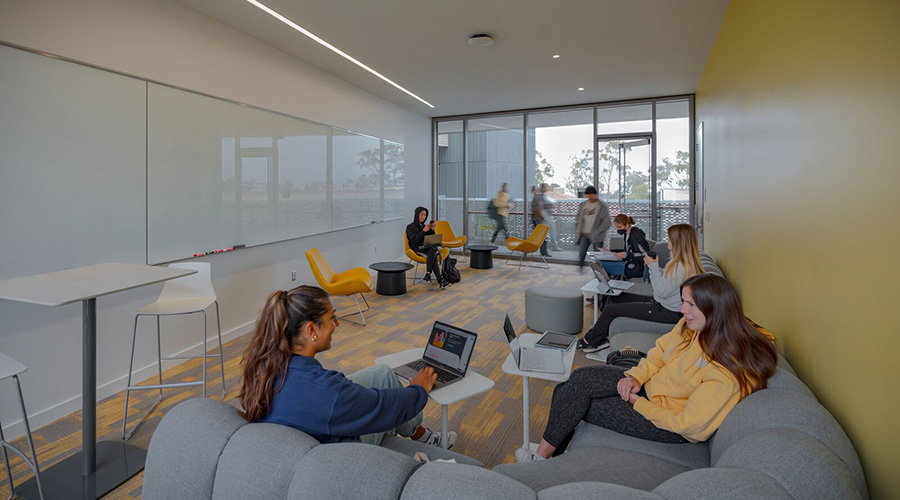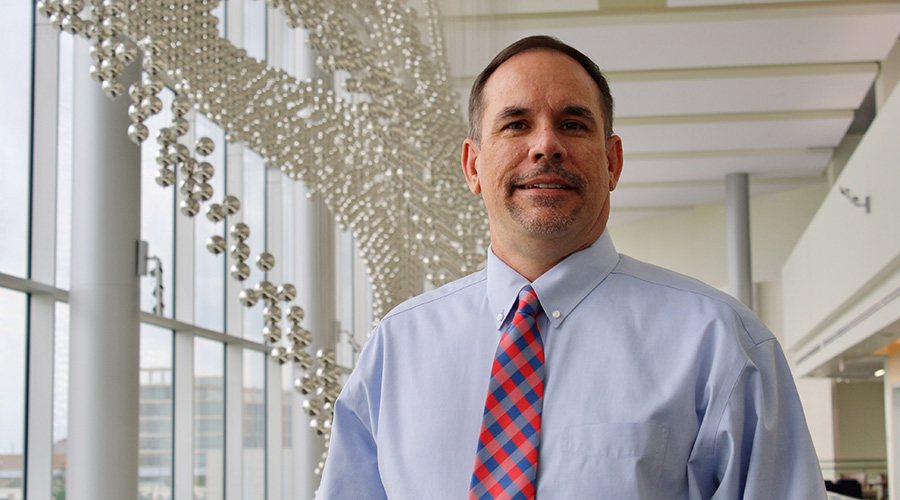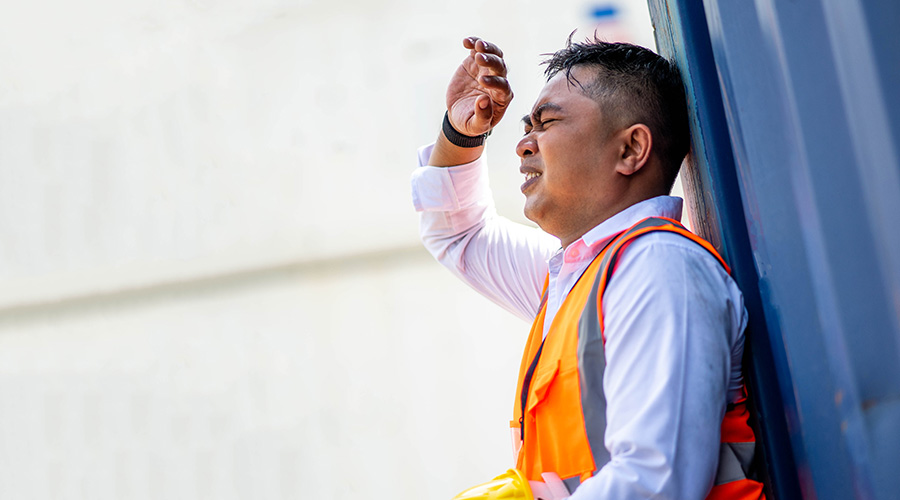
Furnishing Modern, Interactive Spaces for Higher Learning
Tangram Interior design collaborative spaces in UCSB's New Interactive Learning Pavilion. July 31, 2024
In 2023, the University of California, Santa Barbara (UCSB) was facing a pressing issue: its growing student population was surpassing its existing classroom capacities.
To address this challenge, UCSB partnered with LMN Architects to design the Interactive Learning Pavilion (ILP), a dynamic 90,000-square-foot space promoting experiential learning through innovative classroom designs. This addition was set to increase the campus’s learning space by at least 35 percent. Working closely with UCSB and LMN, Tangram Interiors furnished the ILP and created an environment conducive to serendipitous collaboration, creativity, and social interaction.
The purpose of the Interactive Learning Pavilion extends beyond addressing the immediate need for additional classroom space. It was driven by a visionary approach to revolutionizing the traditional learning environment and embracing the evolving pedagogical practices of the 21st century.
The overarching goals of the Interactive Learning Pavilion project included:
- Enhancing Experiential Learning: This was conceived as a space where students could actively engage with course material, collaborate with peers and apply theoretical concepts to real-world scenarios. The ILP provides versatile and interactive learning environments and facilitates hands-on experiences that promote deeper understanding and retention of knowledge.
- Fostering Collaboration and Interdisciplinary Interactions: The ILP sought to break down disciplinary silos and encourage cross-pollination of ideas. Through careful design and furnishings, these spaces enhance meaningful interactions among students and faculty from diverse academic backgrounds.
- Supporting Varied Teaching Methods: Traditional lecture-style teaching is increasingly supplemented or replaced by more interactive and participatory approaches. The ILP accommodates a variety of teaching methods, including active learning, flipped classrooms and collaborative group work.
- Promoting Faculty-Student Engagement: Central to the ILP's project goals was to create inviting and dynamic learning environments. The ILP encourages faculty members to adopt innovative teaching practices and to actively engage with students both inside and outside the classroom.
Tangram Interiors’s approach to furnishing the ILP ensured that each space within the facility supported the university's educational objectives.
The project encompassed five lecture halls, three active learning spaces, 20 flexible classrooms, a mother’s room and a tech suite, all equipped with innovative furniture solutions tailored to enhance learning and teaching experiences.
Tangram strategically selected furniture that prioritized mobility and adaptability, with products like Turnstone Shortcut chairs and Steelcase Verb flip tables, to facilitate easy reconfiguration of classroom layouts. The company also outfitted collaborative areas with diverse lounge settings, catering to both socializing and studying needs.
The bright color schemes and design elements of each floor were inspired by the surrounding Santa Barbara landscape, creating a cohesive aesthetic that beautifully integrates with the area’s natural environment.
A standout feature is the outdoor patio which invites students to engage in outdoor learning and social activities. Tangram Interiors transformed this space into a vibrant oasis with the SIXINCH Cliffy curvilinear lounge.
The completion of the ILP in the spring of 2023 marked a significant milestone for UCSB. The building provides the campus community with state-of-the-art learning and social spaces that encourage innovation and interaction. Additionally, the ILP was eventually voted as the US Building of the Year in 2023.
Tangram’s flexible furniture solutions have empowered instructors to explore diverse teaching methods, while students have benefited from enhanced engagement and collaboration opportunities.
The ILP has quickly become a focal point of campus life, facilitating a culture of interdisciplinary learning and creativity. Faculty and students alike appreciate the inviting and adaptable environment.
Next
Read next on FacilitiesNet












